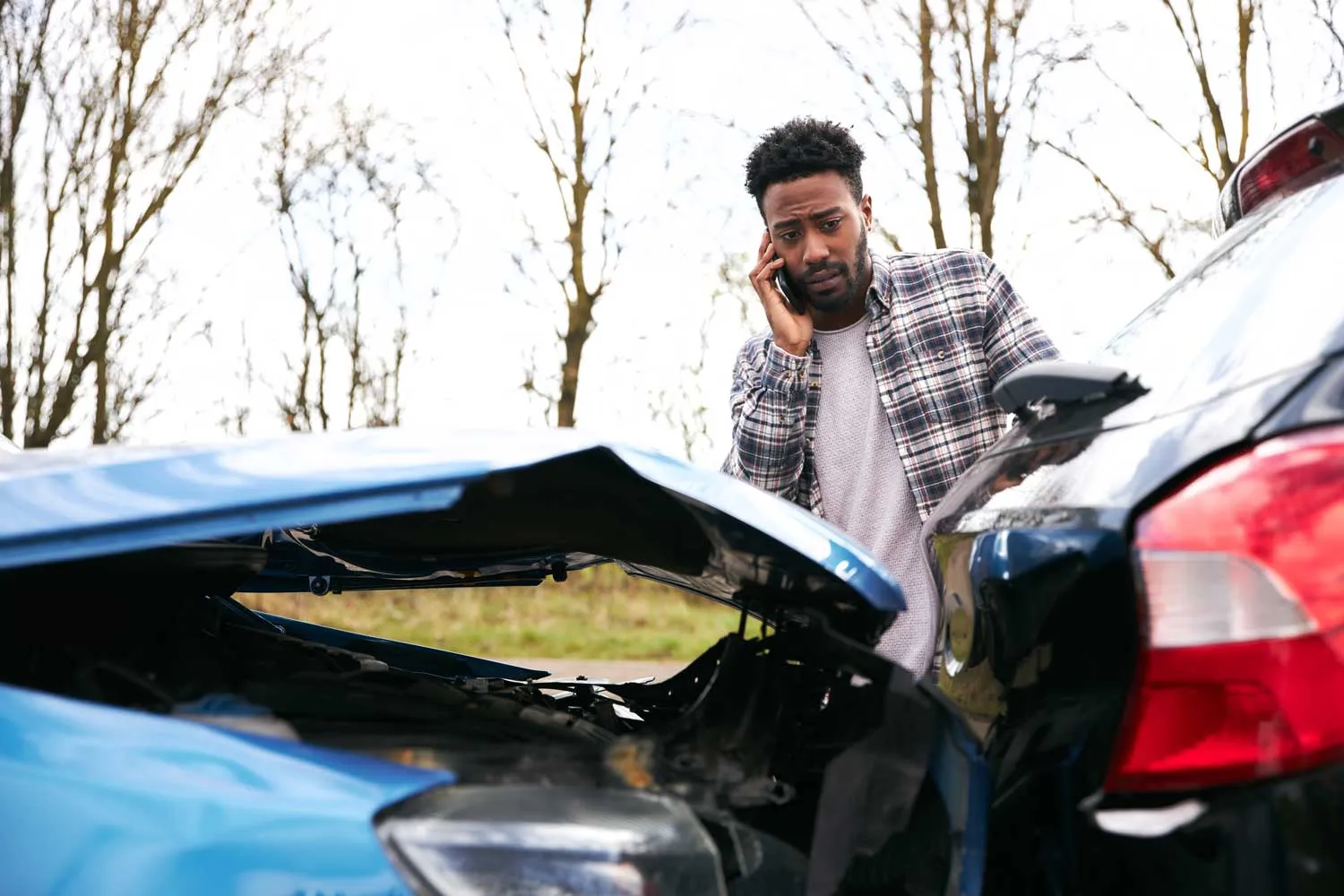Is an Auto Accident Settlement Taxable
Picture this: You’re cruising down the streets of Atlanta, minding your own business, when suddenly—screech!—the world comes to a crashing halt. An auto accident. In the blink of an eye, your life is turned upside down. But as you navigate the aftermath of the collision—dealing with injuries, wrangling with insurance companies, and trying to piece your life back together—one question looms large: What about taxes on your settlement? Yes, even in the chaos of a car wreck, Uncle Sam manages to make his presence known. But fear not because we’re here to shed light on this murky territory. With insights from an experienced Atlanta Auto Accident Lawyer, we’ll unravel the mysteries of auto accident settlements and answer the burning question: Is an Auto Accident Settlement Taxable? So, buckle up as we embark on a journey through the twists and turns of tax law in the aftermath of an auto accident.
Auto Accident Settlement
In the bustling city of Atlanta, where the highways hum with activity, and the streets pulse with life, the expertise of an Atlanta Auto Accident Lawyer is indispensable. These legal professionals stand as beacons of support for individuals thrust into the chaos of auto accidents. With their in-depth knowledge of Georgia’s traffic laws and their extensive experience in handling personal injury cases, Atlanta Auto Accident Lawyers are equipped to guide their clients through every step of the legal process. From gathering evidence and negotiating with insurance companies to representing clients in court, these lawyers are committed to securing the best possible outcome for those they represent. Read about “What Is a Typical Settlement for an Auto Accident” to understand more about the compensation process.
An auto accident settlement represents a crucial juncture in the journey of those affected by car crashes. It serves as a means of redress for the physical, emotional, and financial toll inflicted by the collision. Through negotiations facilitated by legal representation, individuals strive to reach a settlement that adequately compensates them for medical expenses, lost wages, pain and suffering, and other damages incurred as a result of the accident. With the guidance of an Atlanta Auto Accident Lawyer, individuals can navigate the complexities of settlement negotiations with confidence, knowing that their rights are protected and their interests are advocated for vigorously.
Common Misconceptions About Auto Accident Settlements and Taxes
Misconception #1
All auto accident settlements are taxable. As we’ve discussed, this is not the case. Compensation for physical injuries is typically not taxable, while amounts awarded for non-physical damages or punitive damages may be subject to taxation.
Misconception #2
You don’t have to report your settlement to the IRS. This is a big no-no. Failing to report taxable income, including settlement proceeds, to the IRS can lead to serious consequences, including penalties and interest. It’s essential to comply with tax laws and accurately report any income you receive, including from auto accident settlements.
Misconception #3
You can deduct medical expenses related to your injuries. While it’s true that you can deduct certain medical expenses on your taxes, including those related to auto accident injuries, there are limitations and eligibility criteria. Generally, you can only deduct medical expenses that exceed a certain percentage of your adjusted gross income (AGI). Again, consulting with a tax professional can help you determine what expenses are deductible in your specific situation.
Do You Pay Taxes on Insurance Settlements?
The tax implications of insurance settlements can vary depending on the nature of the settlement and the circumstances surrounding it. In general, if you receive an insurance settlement for damages that you’ve suffered, whether it’s from a car accident, property damage, or another type of claim, the IRS typically does not consider that settlement as taxable income. This is because insurance settlements are intended to restore you to the position you were in before the loss occurred, rather than providing you with additional income.
However, there are exceptions and nuances to consider. For example, if you receive a settlement that includes punitive damages or compensation for emotional distress, those amounts may be subject to taxation. Additionally, if you receive interest on your settlement amount, that interest may be taxable as income. It’s also essential to consider the tax implications of any investment income you earn from investing your settlement proceeds. While the initial settlement amount itself may not be taxable, any income generated from investing those funds, such as dividends or capital gains, may be subject to taxation.
As always, it’s advisable to consult with a tax professional or accountant to understand the specific tax implications of your insurance settlement and ensure compliance with relevant tax laws. They can provide personalized guidance based on your circumstances and help you navigate any tax obligations associated with your settlement.
Hire an Atlanta Auto Accident Lawyer
Suppose you’ve been involved in an auto accident in Atlanta. In that case, hiring an experienced Atlanta Auto Accident Lawyer can make a world of difference in navigating the legal complexities and securing the compensation you deserve. With their expertise in Georgia’s traffic laws and their track record of success in handling personal injury cases, an Atlanta Auto Accident Lawyer can be your strongest advocate during this challenging time.
Legal Expertise
Auto accident cases can be complex, involving various legal intricacies and nuances. An Atlanta Auto Accident Lawyer has the knowledge and experience to navigate these complexities effectively, ensuring that your rights are protected and that you receive fair compensation for your injuries and damages.
Investigation and Evidence Gathering
Following an auto accident, gathering evidence to support your claim is crucial. An Atlanta Auto Accident Lawyer will conduct a thorough investigation into the circumstances of the accident, collect relevant evidence, such as police reports and witness statements, and work with accident reconstruction experts, if necessary, to build a strong case on your behalf.
Negotiation with Insurance Companies
Dealing with insurance companies can be daunting, especially when you’re recovering from injuries sustained in an accident. An Atlanta Auto Accident Lawyer will handle all communication and negotiations with the insurance company on your behalf, ensuring that you don’t settle for less than you deserve and that your rights are protected throughout the process.
Litigation Representation
In some cases, negotiations with insurance companies may not lead to a fair settlement. If litigation becomes necessary, an Atlanta Auto Accident Lawyer will represent you in court, advocating vigorously for your rights and interests and working tirelessly to secure a favorable outcome.
Peace of Mind
Dealing with the aftermath of an auto accident can be overwhelming, both emotionally and physically. By hiring an Atlanta Auto Accident Lawyer, you can focus on your recovery and well-being, knowing that your legal matters are in capable hands.
If you’ve been injured in an auto accident in Atlanta, don’t hesitate to seek legal representation. Contact an experienced Atlanta Auto Accident Lawyer today to schedule a consultation and learn more about how they can help you navigate the path to recovery and justice.
Conclusion
In the aftermath of an auto accident, the decision to hire an Atlanta Auto Accident Lawyer can be the difference between feeling overwhelmed by the complexities of the legal process and finding a path to justice and recovery. With their expertise, dedication, and unwavering commitment to their client’s well-being, an Atlanta Auto Accident Lawyer from Shani Brooks Law can provide the guidance and support needed to navigate the challenges of personal injury claims. From investigating the accident to negotiating with insurance companies and, if necessary, representing you in court, they will stand by your side every step of the way, ensuring that your rights are protected and that you receive the compensation you deserve for your injuries and damages. So, if you’ve been injured in an auto accident in Atlanta, don’t face the legal battle alone—reach out to an Atlanta Auto Accident Lawyer from Shani Brooks Law and take the first step toward reclaiming your life and your future.
Ready to ensure that your auto accident settlement remains in your pocket where it belongs? With Shani Brooks Law, you’ll not only receive expert guidance on the tax implications of your settlement but also gain a dedicated legal team committed to maximizing your compensation. Don’t let the complexities of tax law leave you in the dark—contact Shani Brooks Law to shed light on your options and help you secure the financial recovery you deserve.
FAQs: Is an Auto Accident Settlement Taxable
Is the entire auto accident settlement taxable?
In most cases, no. Compensation for physical injuries or property damage typically isn’t taxable, but portions allocated to punitive damages or non-physical damages may be subject to taxation.
Do I need to report my auto accident settlement to the IRS?
Yes, you should report the settlement to the IRS, but only the taxable portion. Compensation for physical injuries or property damage generally doesn’t need to be reported, but any taxable portions should be accurately reported to avoid potential penalties.
Are there any exceptions to the tax-exempt status of auto accident settlements?
Yes, settlements that include compensation for punitive damages, emotional distress, or interest may be taxable. It’s essential to consult with a tax professional to determine the tax implications of your specific settlement.
Will I receive tax forms for my auto accident settlement?
It depends on the type of settlement and the entities involved. Generally, if the settlement is taxable, you may receive a Form 1099 reporting the taxable portion of the settlement from the payer.
Can I deduct medical expenses related to my auto accident from my taxes?
You may be able to deduct certain medical expenses related to your auto accident, but there are limitations and eligibility criteria. Consulting with a tax professional can help you determine what expenses are deductible in your specific situation.



